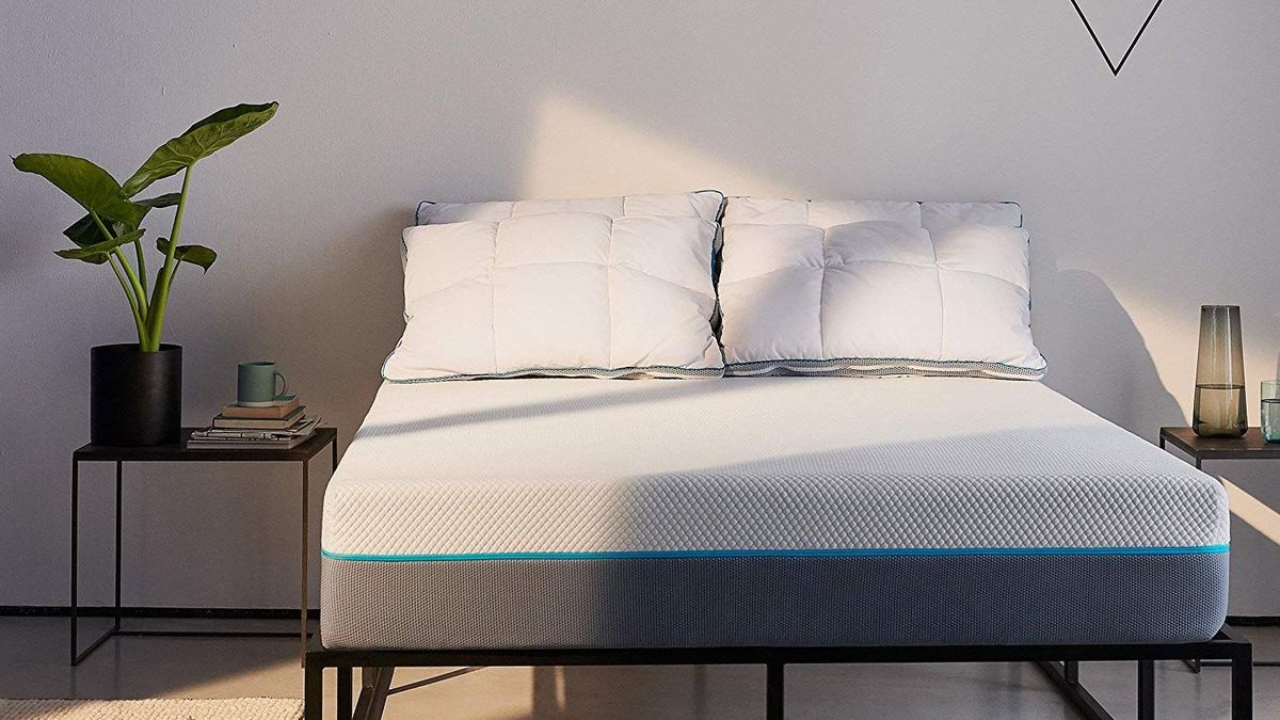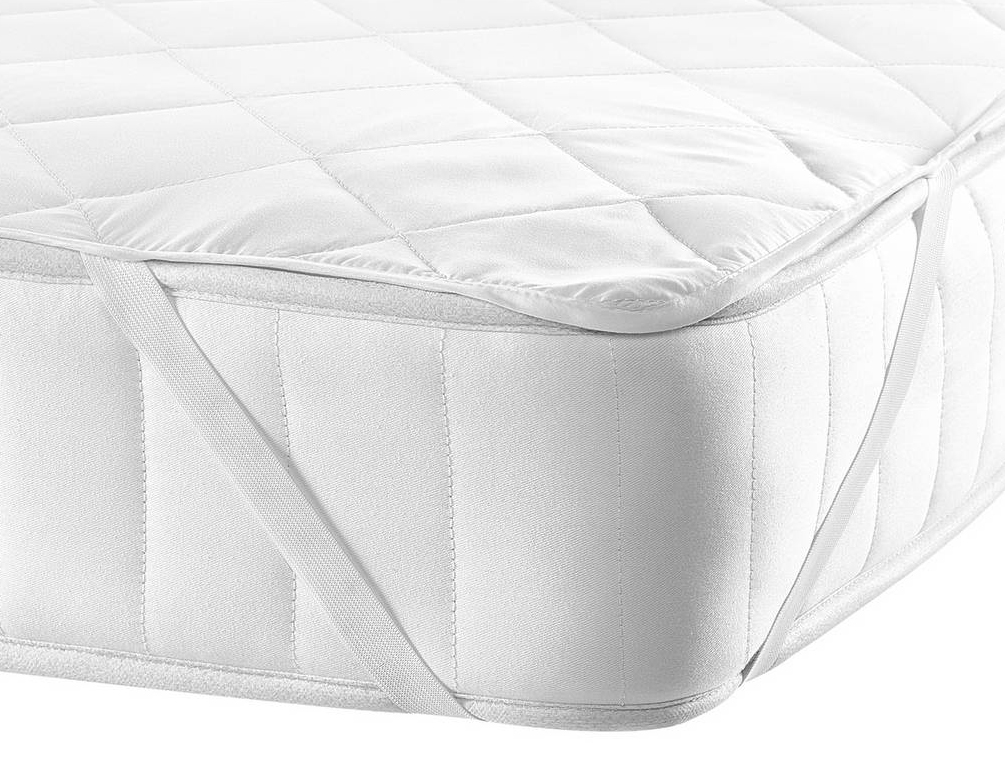How often should you change your mattress?
How long should your mattress last? And how do you know when it needs changing? Here's what the experts say...

Bethan Morgan

Get all the latest news, reviews, deals and buying guides on gorgeous tech, home and active products from the T3 experts
You are now subscribed
Your newsletter sign-up was successful
How often should you change your mattress? Considering you spend roughly a third of your life on it, the state of your mattress is something you should give a lot of thought to, especially considering how important it is to your health and wellbeing.
It's an easy thing to let slide, though. Because you're sleeping on it every night, you're less likely to notice any slow degradation in the quality of your mattress, and it's not until you replace it with a plush new model that you realise that your old mattress was well past its prime.
A new mattress is a significant expenditure (even if you take advantage of cheap mattress deals), so replacing your old one is a decision that's easy to forget about for a while. But biting the bullet and upgrading your sleep surface can bring huge benefits, and here we've gathered together all the information you need to decided whether it's time to give your aging mattress the old heave-ho.
Of course, if you already know in your heart that it's time to invest in a new model, head directly to our best mattress guide to find the perfect fit for you. But if you're still not sure, read on...
How often should you change your mattress?
The industry consensus appears to be that you should change your mattress at least once a decade. For example, the Better Sleep Council, the consumer-education arm of the International Sleep Products Association, suggests that seven to 10 years as a good “rule of thumb”. Similarly the UK’s Sleep Council, which is funded by the National Bed Federation, recommends changing your mattress every seven to eight years.
However, finding the evidence or research behind such estimates is very tricky. The industry standard is to offering warranties of around 25-30 years on purchased mattresses, which suggests some people are keeping them much longer. However, there are plenty of reasons why you might want to avoid stretching the life of your mattress too far.

Why should you change your mattress?
A 2008 study by Oklahoma State University, based on a control group of 59 people, found evidence that new mattresses have a significant impact on reduced back pain and improved sleep quality. Those initial benefits improved over time, regardless of the person’s age, weight, height or body mass index.
Get all the latest news, reviews, deals and buying guides on gorgeous tech, home and active products from the T3 experts
There's also the issue of hygiene. The average person sweats around half a pint every night and 1kg of skin cells a year, and that's not to mention dirt, saliva, body oils, hairs and more. All of this can become nourishment for microbes, dust mites and other insects. Regular laundering, vacuuming and turning can help minimise the impact, of course, but the older the mattress, the greater the chance it will become infected.
Changing your mattress: What you need to consider
In truth, how often you should change your mattress varies from person to person. Factors will include the type of mattress, how well it’s made, how often it’s used, and how well you care for it. So rather than focusing on a fixed figure, it’s better to base your decision on what your experience of your current mattress is actually like.
Obviously, if you can see visible tears, rips, holes, stains, sagging or other damage in your mattress, then it’s time to get a new one. Similarly, if it feels lumpy and isn’t supporting you in the right way, then don’t waste any more time on it. Your health and well-being just aren’t worth it.
However, even if those things aren’t the case, there are other signs you might need to change your mattress.

The Eve Premium Hybrid is one of our favourite mattresses in the world right now
For example, do you often wake up with stiffness, numbness, or aches and pains? Are you always tired, despite getting the opportunity for a full night’s sleep? Do you have a hard time getting comfortable in bed? Do you often feel too hot or too cold? Does your partner complain about you moving about too much in the night? Have your allergies been getting worse of late? If you answered yes to any of these questions, it’s likely that you need a new mattress.
There may be other reasons for these symptoms but if you tend to get a better night’s sleep when you sleep in another bed, such as at a hotel, that’s a sure sign that your mattress has reached the end of its useful life. Time to read our guide to the best mattresses and check out the best cheap mattress deals.
How to extend the life of your mattress
There are plenty of ways you can make sure your mattress lasts as long as possible. One is to use a mattress protector, as they can be an important line of defence against dust-mite infestation, as well as protecting your mattress against spills and stains. Check out our guide to the best mattress protectors to find one that’s right for you.

Slumberdown's Teflon Mattress protector offers excellent value
If you're experiencing back or joint pain, a mattress topper can help, by adding a layer of softness or height to your mattress that makes it more comfortable. A mattress topper does not protect your mattress as a mattress protector does, but there's no reason you can’t use both. Check out our round-up of the best mattress toppers.
You should clean your bed linen at least once a week, to protect dirt, dust and bodily oils getting into your mattress. For similar reasons, you should vacuum your mattress at least once a month.
Airing is also important. Remove your duvet, sheets and pillows from your bed regularly (you can leave the mattress cover on) and expose it to air and sunlight, if possible, for a couple of hours at least. This allows bodily liquids to evaporate and reduces the chance of infestation.
For more advice, here are 4 hacks to extend the life of your mattress.
How often should I turn my mattress?
Rotating and flipping is a more complex question. Traditionally, it was recommended that mattresses need to be flipped at least twice a year and rotated every three months. This evens out the pressure on the mattress, and protects the areas which are slept on most from sagging.
However, many modern mattresses are designed not to require flipping or rotating: indeed, for some brands of foam mattress you might end up damaging the mattress by flipping it. So it’s important that you first check the manufacturer’s instructions; if you don’t have the paper version any more you should be able to find this on their website.
For more information, see our full guide to how often should you flip your mattress.

Tom May is a freelance writer and author of the book, Great Ted Talks: Creativity. He has been editor of Professional Photography magazine, associate editor at Creative Bloq, and deputy editor at net magazine. He has also worked for a wide range of mainstream titles including Radio Times, NME, Heat, Company and Bella.
- Bethan MorganHome Editor